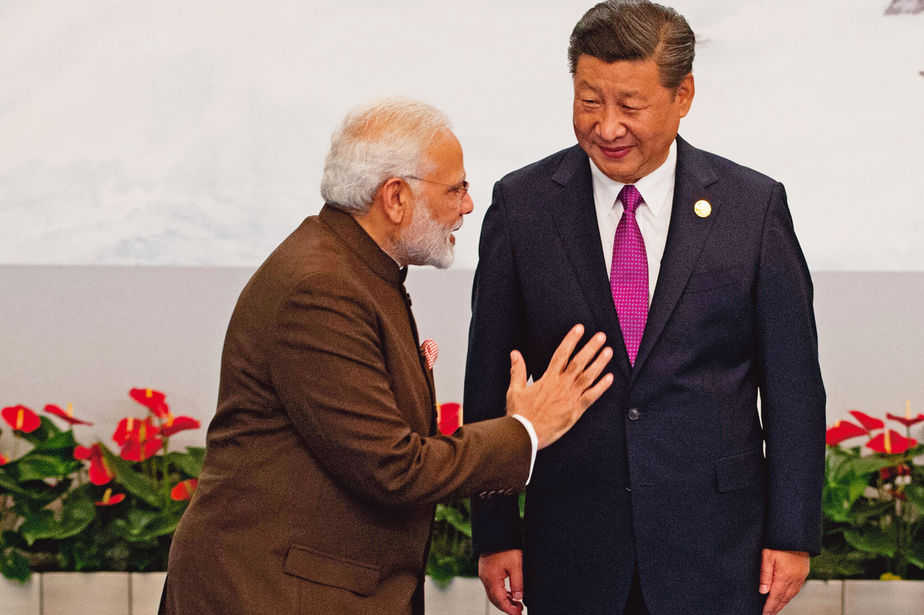Pakistan to feature in the ‘grey list’ of the global money laundering watchdog after China revoked its support
Pakistan will finally feature in the ‘grey list’ of the Financial Action Task Force (FATF) — a global money laundering watchdog — from June this year. This was made possible after China, Turkey and Saudi Arabia, reportedly under the US pressure and due to India’s persuasion, withdrew their support to Pakistan during the last phase, allowing the motion to be passed successfully.
This is seen as a diplomatic triumph for India but should have been done long back. India managed to convince China after active parlance to withdraw support to Pakistan. China didn’t relent, diplomats concede, only because of India’s persuasion: the real reason could be China’s growing frustration with Pakistan.
After suspension of the US security assistance, Pakistan is increasingly relying on China. The latter has proved to be a long trusted friend. But the Chinese support to Pakistan is not gratis. China is looking to further its strategic interests in the region. Pakistan’s active support for China in its pan-global ambition is handy. Pakistan is one of the smaller partners in the One Belt One Road (OBOR) initiative that will connect China to the world. Under the aegis of OBOR, China has committed $60 million for the China-Pakistan Economic Corridor (CPEC). India is opposed to the project as the proposed CPEC will pass through Pakistan occupied Kashmir (PoK). For Pakistan, it’s a major initiative that will boost the sagging economy. Also, thanks to China, a new port is being built in Baluchistan, so that European and African markets can be connected with China via Pakistan through sea trade routes.

In a joint statement recently, Chinese Foreign Minister Wang Yi, Afghanistan’s acting Foreign Minister Salahuddin Rabbani and Pakistan’s Foreign Minister Khawaja Asif, after first of its kind tri-lateral meeting in Beijing, called for a “broad-based and inclusive peace and reconciliation process, which is ‘Afghan-led, Afghan-owned’ to end violence in the region. The trio were hopeful that Taliban would join the peace process soon.
China has made it clear time and again to Pakistan, in bilateral communications, that it’s not in favour of ‘proxy terrorism’. Despite the fact that interests of China and the US don’t converge as far as Afghanistan is concerned, China, has clarified, as a mediator between Pakistan and Afghanistan, that it is in its strategic interest to defeat terrorism in the region.
The buzz is that it’s not only the US, but also China is increasingly getting frustrated by Islamabad’s inaction against terror groups that find safe haven in Pakistan. This concern is seen as the key reason that lead China to withdraw its support to Pakistan at FATF, amongst other reasons, one of which could be India’s persuasion.
China took care not to criticise Pakistan openly when it comes to the latter’s objectionable policy on terrorism. This is a thing of the past. Apart from FATF, in the BRICS summit where heads of state and governments of Brazil, Russia, India, China and South Africa were present, a list of militant groups allegedly based in Pakistan that pose threats to regional security was released.
After all, the stakes are high for China. It has invested heavily in the region, and no economic activity is possible till these terror outfits are contained. China has expressed concern about Pakistan’s militarised approach to deal with the popular discontent amongst locals in Baluchistan who feel alienation in their own country. By withdrawing support to Pakistan at FATF, China has given Pakistan a reality check. The message is clear: Pakistan has to do more to protect China’s economic and geopolitical interests to earn the latter’s blanket support.
There are still three more months to go before Pakistan will be part of the ‘grey list’. It is in Pakistan’s interest to act quickly and decisively to deal with the sprouting of terror outfits in the region under its control and prevent proliferation of terror into other parts of the world. It is a matter of concern that the prime driver of the Pakistan’s counterterrorism effort is the army and the civilian government has little say in the matter. The hands of the Pakistan government are tied.
Earlier this year, the US had declared to suspend $900 million aid to Pakistan as part of the security assistance package until the Pakistani Army takes action against the Afghan Taliban and the Haqqani network militant groups. Two main categories of funding are likely to be affected, namely, foreign military financing — resources that are diverted to purchases of the US manufactured military hardware; the other chunk is for the ‘coalition support’ to secure Pakistan’s cooperation in the US’ counter-terrorism operations in the region.
US President Donald Trump, in his matter-of-fact way, tweeted, ‘The United States has foolishly given Pakistan more than 33 billion dollars in aid over the last 15 years, and they have given us nothing but lies & deceit, thinking of our leaders as fools. They give safe haven to the terrorists we hunt in Afghanistan, with little help. No more!’ China’s message to Pakistan is, perhaps on similar lines: You can’t take our support for granted





